Professor Jan Simon earned a PhD from the University of Essex, an MBA from IESE Business School, and a law degree from Katholieke Universiteit Leuven. Prof. Simon also holds a postgraduate degree in investment advice from EHSAL Management School. He serves as an adviser to Pacific Lake Partners.
Question: What motivated you to change careers? You earned your law degree, went into financial services at Goldman Sachs and ended up in academia.
Answer: There has never been a big plan behind it. I studied law because I wanted to join the Intelligence forces, like MI6 or the CIA. In order to become an officer in Belgium’s intelligence forces, you need either 10 years of experience or a law degree. That’s why I studied law.
The Intelligence Forces’ selection process is peculiar: a government paper publishes when they are hiring people. I think I sent them three letters and never heard back from them. They must have checked up on me and saw something they didn’t like. I probably talk too much or something like that. [laughs]
This was also my reasoning behind joining the Special Forces. I thought that, with my law degree and experience as a military parachutist and a commando, the services would for sure hire me. I am still waiting. [laughs]
When all that happened, I thought to myself “You’re kind of in trouble.” By that time, I knew I wanted to leave Belgium, but the problem with law degrees is that most of the law is domestic law. If you want to work abroad, it’s almost impossible. I thought to myself, the only places in Belgium that hire people with law degrees and send them to work abroad are banks, so I sent my CV to banks.
The recruitment processes at Belgium banks are heavy on numerical tests and weak on interviews. Before earning my law degree, I had studied mathematics, so my numerical tests were pretty good. The HR director asked if I was interested in becoming a trader. I didn’t have a clue about what she was talking about. I asked if I could do this abroad. She replied that the bank had trading floors in Hong Kong, New York and London. My follow-up question was “What is trading?” It was 1989 and the HR director didn’t know too much about it either. She asked “Have you seen the movie Wall Street? It is something like that.”
After doing some more numerical tests, I was hired into the bank’s Dealer School, an intensive 4-month training program for financial markets.
During each semi-annual performance review, I would ask when I would be transferred abroad. Each time the response was something similar to “Yeah, well, it’s a little bit early, but keep up the good work.”
The second year, I had an incredibly good year, so I thought, “This is it, I will definitely be going abroad now.” But again they told me to be patient. When I found out that they had just hired a new batch of inexperienced employees into the Dealer School that would be posted abroad after completing the course, I resigned and left to do an MBA at IESE.
Q: That was it.
A: That was it for me. I did my MBA at IESE and my summer internship with Goldman Sachs. Later on, I worked for Salomon Brothers and again for Goldman Sachs. In 2002, I decided to take a break after one of my close friends passed away from cancer. We were a very close group of friends, having first met at the swimming club before becoming water polo players and colleagues with the North Sea Lifeguards. When Jurgen passed away, I had a “wake-up call” that made me think, “Life might be way shorter than I think it is.” I always wanted to travel around the world, so that’s what I did. I resigned from Goldman. They told me to take my time and come back when I was ready.
I used Barcelona as my home base when I wasn’t traveling. One day I received a call from the dean of IESE, Professor Jordi Canals, asking if I was interested in teaching.
I met with the head of the Finance Department and we agreed that I would teach the investment course during the last leg of my “sabbatical.” After it ended, I continued to teach on weekends, flying in from London. Eventually I decided that flying back and forth wasn’t sustainable and accepted IESE’s offer to join full-time while I earned my PhD.
Q: What major trend do you think MBAs will face over the next few years?
A: These are some challenging and exciting times. There are some big trends colliding globally while corporations are responding. A first trend is an increase in the speed of innovation and disruption. Take Google, for example. In my view, Google is one of those companies that does not take rules as a given, they don’t take the world as a given, they take it as something that they can shape. They achieve this through innovation and disruption. Along these lines is the coalescence between business, science, mathematics and engineering. Look at what’s happening at SpaceX, Tesla or indeed, the Singularity University. We need this type of thinking, as there are so many big, big issues in the world. Poverty, wars, food insecurity, pension fund problems, climate change, just to name a few. We will not be able to solve these issues unless we start changing the way we do business. As Einstein quipped: “Insanity is doing the same thing over and over again and expecting different results.”
The re-emergence of China as a global player is another trend that is here to stay. After teaching financial markets over many years, one of the funny things for me is that this is only the second year people mention CPI and China’s GDP. Two years ago, nobody talked about it because its impact was secondary. It is just a matter of time before we have two economically equal powers and with equal powers, I believe our minds are going to change, especially here in Europe where we are Americanized in our way of thinking, with a very “black and white” approach. I think that this will introduce changes in the political sphere as well.
To be honest with you, I would be super-excited if I were an MBA right now. When I graduated, MBAs basically had two choices—banking or consulting—but now there are so many other things that you can do. I come from a time when failing was considered a bad thing and consequently, we would only take limited risks. Today, on the other hand, failing is seen as a “learning process” and that shift is just massive. I would love to trade places with you. But…it is also “yours for the making,” it’s what you’re going to make out of it. I’d be excited if I were you.
Q: I am.
A: Good.
Q: Have you had any funny situations in any of your classes, other than kicking out half of the class, of course?
A: Let me first say this. Whenever I kick somebody out, I don’t sleep well that night. My wife thinks it is karma. I think, if I have to kick somebody out, that person fails. That person fails him or herself, fails the team and fails the class. But at the same time, I feel that I failed as well, because if I had been inspiring or engaging enough, I wouldn’t have somebody sitting there who isn’t prepared or paying attention to their mobile. So it’s always a failure on my part when I have to kick someone out. It is not a fun thing to do. At the same time, I think, it is the right thing to do. It should encourage people to take this more seriously, their own lives more seriously, and the MBA more seriously.
Back to your question. I’ll never forget, once in an exam, I was walking around. There was this student who, whenever something went wrong in class, always thought it was him. I felt for the guy, but it was just bad luck. I am sure he thought I had something against him, but I didn’t. During the exam, I was walking around and didn’t see that he had left his backpack on the side. I tripped over it and fell. Now, you know that during an exam, the classroom is very quiet and everyone is concentrating. The sheer noise of me falling got everyone’s attention. I saw him looking at his backpack and he turned completely white. I thought, “Even if the guy deserves a C, I can’t give him a C now.” Lucky for him and for me, he had a great exam.
When I graduated, MBAs basically had two choices—banking or consulting—but now there are so many other things that you can do.
Q: Now you have to be careful. After this interview you might find many backpacks in your path…
A: Yeah, I’ll be sabotaged. There was another situation that might be even funnier.
It must have been five or six years ago. I was teaching capital markets (I was teaching it to all sections A, B, C and D). I think it was the second class. In the first class, as you know, I always tell the students about the “three rules”: “Don’t come late, come prepared and no mobiles.” So, it is the second class, we’re 10 minutes into the class, the door opens and in walks this guy. He walks to the other side of the classroom because the entire class was full and only a couple of seats were empty. So I let him go all the way there and sit down. At that moment, I stopped teaching and said “You. Out please.” And then he looks at me and I said “Yeah, three simple rules. If you don’t follow the rules, you’re out. Can you please leave now.” So the guy stands up, walks all the way to the door, leaves and closes the door. Normally when I do that, everybody becomes quiet and serious, but that time I started teaching again and there was a lot of talk among the students. I heard them murmuring, but didn’t want to ask them “What is it?” so I continued teaching.
After the class, I went to the bar and asked the students, “Why were you talking so much?” and they said, “We couldn’t believe that you kicked out another professor!”
Q: What?! Noooooo…
A: It turns out he was one of the new guys who had just joined and I didn’t recognize him, because when I interviewed him, he didn’t have a beard. I guess someone told him that Jan was teaching a class and that he could sit in and watch.
Q: If you weren’t teaching, what would you be doing?
A: Well, for me, it just depends. I think there are two important things that are totally related: doing something that you’re good at and that creates value, and doing something that makes you happy. Typically, if you like doing something, you will probably be good at it because you want to know more, you want to do better, and so on.
Q: The correlation coefficient is high. (a reference to wealth management class).
A: Exactly, it is high. When you talk to people and ask, “What should I be doing?”, they always say the same thing: “Do what you like doing” and there is good reason behind it. So to answer your question, I would probably have been doing something that I am good at and am happy doing. Well, I know one thing I would have loved to be able to do, which is to sing. I would have loved to have been a pop star. You look at a guy like Bono and you think, “That is just fantastic.” The problem is, I can’t sing.
You could say, “The guy wanted to be a singer but his voice was so bad, his only platform was the classroom.” Because you folks are a captive audience. [laughs] So if I had the right voice, I would have loved to sing in someplace like Camp Nou or Palau Sant Jordi. [laughs]
Q: What are your hobbies?
A: My hobbies… I used to play water polo at the highest level and spent over 20 hours a week in the swimming pool. I still swim, probably once or twice a week. I ski in the winter and just started biking again. After 10 years off of a bike, I started biking again and kind of forgot what it’s like. Now, since it’s winter and I live in Vancouver, I will probably be skiing and maybe kayaking from time to time. I don’t do anything really seriously; I try to rotate sports and exercise two or three times a week.
Q: Favorite book and/or author?
A: Fiction or non-fiction?
Today failing is seen as a “learning process” and that shift is just massive. I would love to trade places with you. But…it is also “yours for the making,” it’s what you’re going to make out of it.
Q: Both.
A: In fiction, I like Conn Iggulden. He writes about historical personae like Caesar or Genghis Khan, but in fictionalized novel-type style.
In non-fiction, which is actually what I read the most, I think Michael Lewis is good. There are a lot of finance books out there, but the problem with them is that you either have people who are good writers but don’t really understand finance, or people who understand finance but aren’t very good writers. Michael Lewis, having worked in finance for Salomon Brothers, does both. I really like his stuff.
Q: What is your favorite cuisine or food?
A: If I had to choose one, it would have to be Japanese food. My favorite restaurants are Nobu in London and New York, and Miku in Vancouver. That is Japanese food that is really, really well done. For more convenience-type food, I like the Italian cuisine. It is fairly priced and also I what I’ve cooked most of my life. As the expression goes, “A man is never lonely while eating pasta.” Indian food would also be high on my list.
Q: Is there a place here?
A: There used to be a restaurant in El Raval. I did my MBA here as you know, and every Thursday there is what is called the “guiris”, when the foreigners who actually stayed would go out. We used to go to that Indian restaurant in El Raval. It looked dodgy from the outside but the food was just amazing and at Raval prices. Unfortunately, they closed it down. I always used to tell my friends, “We should talk to the cook here! We just need to a nice well-located restaurant. We’ll give him part of the shares and we’ll finance him! But you know, we tend to talk a lot but then nothing happens.
At present, actually, I like Agua and the one next to it from the “Grupo Tragaluz” [Bestial], but more because of their location near the beach than their food.
Q: Nobu is partly owned by Robert De Niro.
A: Right… that is right. You see, that’s who I got the idea from! De Niro used to go to this restaurant in L.A. and he really loved the food, so he financed the owner’s expansion. That’s why I told my friends, “Let’s do the same thing with the Indian guy from El Raval.”
Q: But that was De Niro…
A: Are you saying I’m no De Niro?
If you stand in front of people who don’t have any ambition, who are not engaged, who don’t care, it would probably be the hardest job in the world.
Q: Where would your dream retirement location be?
A: I don’t know. You never know these things. As things stand now, I think we’d probably spend a third of our time in Barcelona, a third in Vancouver, and a third traveling.
Q: Is there a place that you’ve already visited that you’d love to go back to? Also, tell us the place on top of your “to do” list.
A: The second one would be the Himalayas. When I traveled around the world, I visited around five or six places that I had wanted to see for a long time. The Himalayas was on the list. I never visited it, but it was on purpose. My uncle once said, “When you go to nice places, there should be one place you don’t visit so you want to go back there or else you will feel something wasn’t fulfilled.” So that was the idea when I was travelling around Asia.
A place I’d like to go back to…For me, your question is related more to an experience than a place. If there was one experience that I’d like to relive, it would be my honeymoon, in terms of visiting places and sharing it with somebody you love.
But to answer your question, if I had to choose one place to go back to, I think it would probably be Brazil. Not the places like Rio de Janeiro or Sao Paulo. The places where you really meet the people. I was really struck by how little people have and how generous they are at the same time.
I’ll tell you a story. I was in Salvador de Bahia, a place in the North, which has an incredibly beautiful little market. It’s so beautiful that it’s protected by UNESCO. I went into a bar and sat down. It had a nice atmosphere, so I decided to come back to it that same night. Everyone who came into the bar went to greet the bartender. The bartender was like the mayor there. All the girls were kissing him and the guys were hugging him. At one stage, he put on a CD of a Brazilian singer, which I thought was just beautiful. I wanted to ask him who the singer was but I don’t speak Portuguese, so I tried my best Spanish. The guy answered in Portuguese, something like “I don’t understand you” so I thought I should try in English. He answered me in English, “It is Ana Carolina,” a Brazilian star. Then he asked me, “Where are you from?” and I said “I’m from Belgium,” and he said “ME TOO!”
Q: Noooooo…
A: He was a guy from a place 30 minutes away from where I lived, Gent, who had been traveling around the world. He had come to that place, fallen in love with it, started running a bar, then bought it and now owned it. I told him, “One day I want to be like you” but that never happened…There you go.
Q: Closing comments.
A: Teaching at IESE is such a great joy and that’s totally because of the people we have in the classroom. If you stand in front of people who don’t have any ambition, who are not engaged, who don’t care, it would probably be the hardest job in the world. I see that in teachers in some schools, they are just depressed. What makes teaching at IESE so wonderful is that the students are engaged, they want to do something, they are happily critical, and they ask questions. It reminds me a lot of being a lifeguard. My best friend also used to be a lifeguard (he also worked at Goldman Sachs and he’s also in academia, so I kind of have a twin brother in him). I often told him that I would have been a lifeguard for free, it was just a great job. So teaching (don’t tell my boss) people like you folks, one would even want to do it for free.
IESE is just different in that way. I realized it when I was doing my MBA and went to the Paris Olympics. I remember us playing the finals in basketball. The other team was so much better than we were, but they had only four or five people supporting them. On IESE’s side, everybody was shouting from the sidelines, and we won the final because of that. That spirit, understanding that “It’s more than just about me, it’s about us.”
Q: You were part of that spirit as well many years ago, when you were an MBA.
A: Thank you. I am not sure though if our teachers were thinking the same back then.
Q: Are they still here?
A: Some of them are still here. Ahmad Rahnema and Javier Santomá were two of my finance teachers. Eduardo Martínez Abascal was actually the professor who taught me financial markets.
I would like to thank Professor Jan Simon for his time.
Long interview. I’ll stop typing now.
Until the next issue.


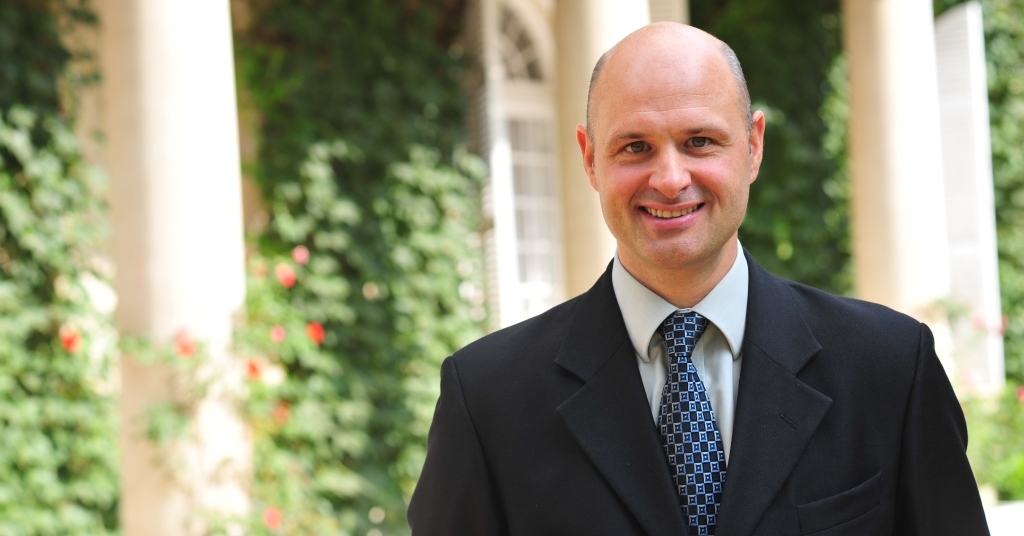
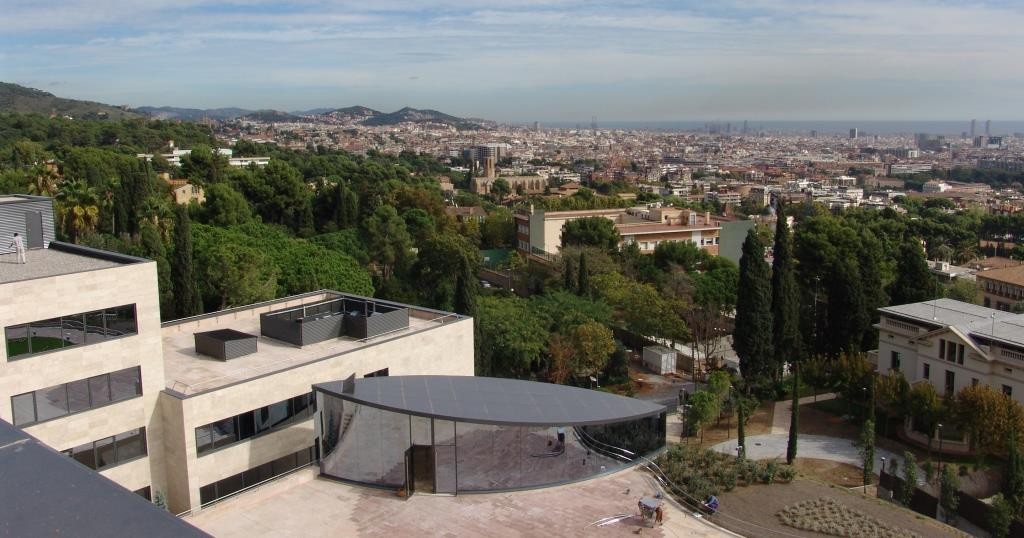
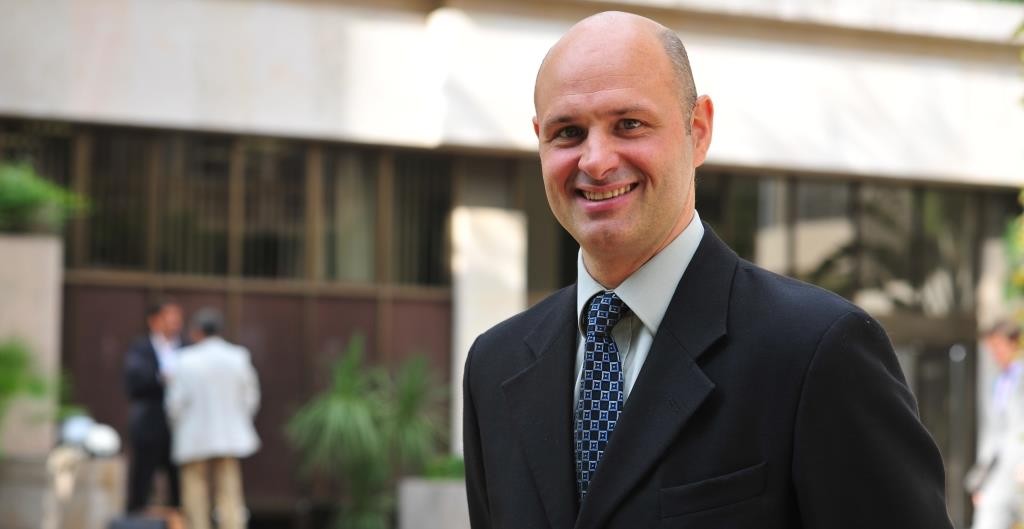
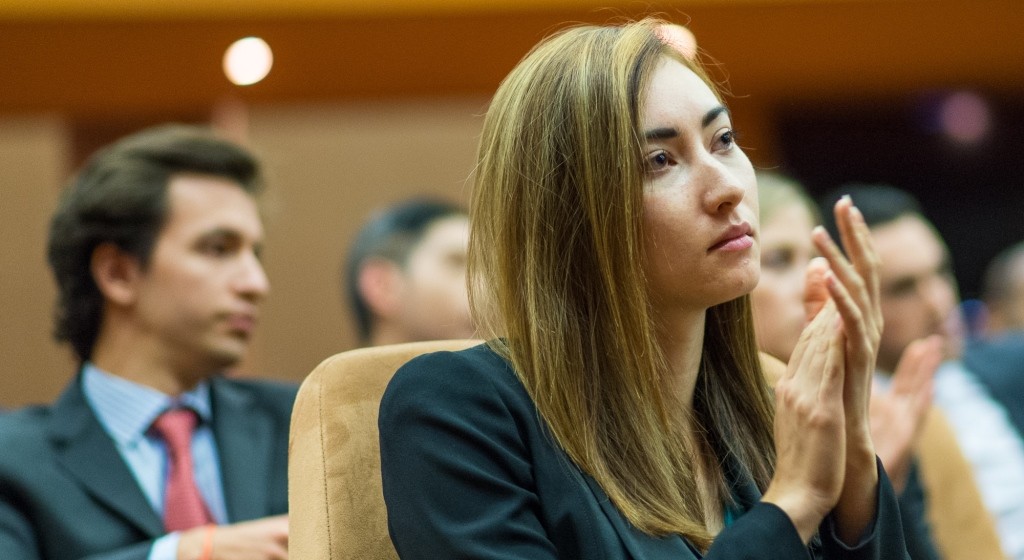
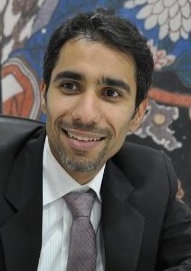

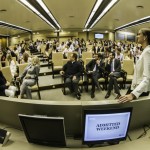

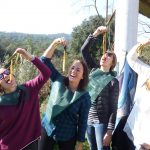
I’m the professor that was kicked out. Rules are rules! It made sure that no one ever got late that year 🙂
Great interview and Jan is an awesome guy.
Love the interview. Hilarious and definitely entertaining.
Very interesting interview. Thanks
When the man interviewed then he showed like young because he had no beard. I think if he had beard, he would looking great. Now beard is trend and using beard oil then people has looking amazing look.